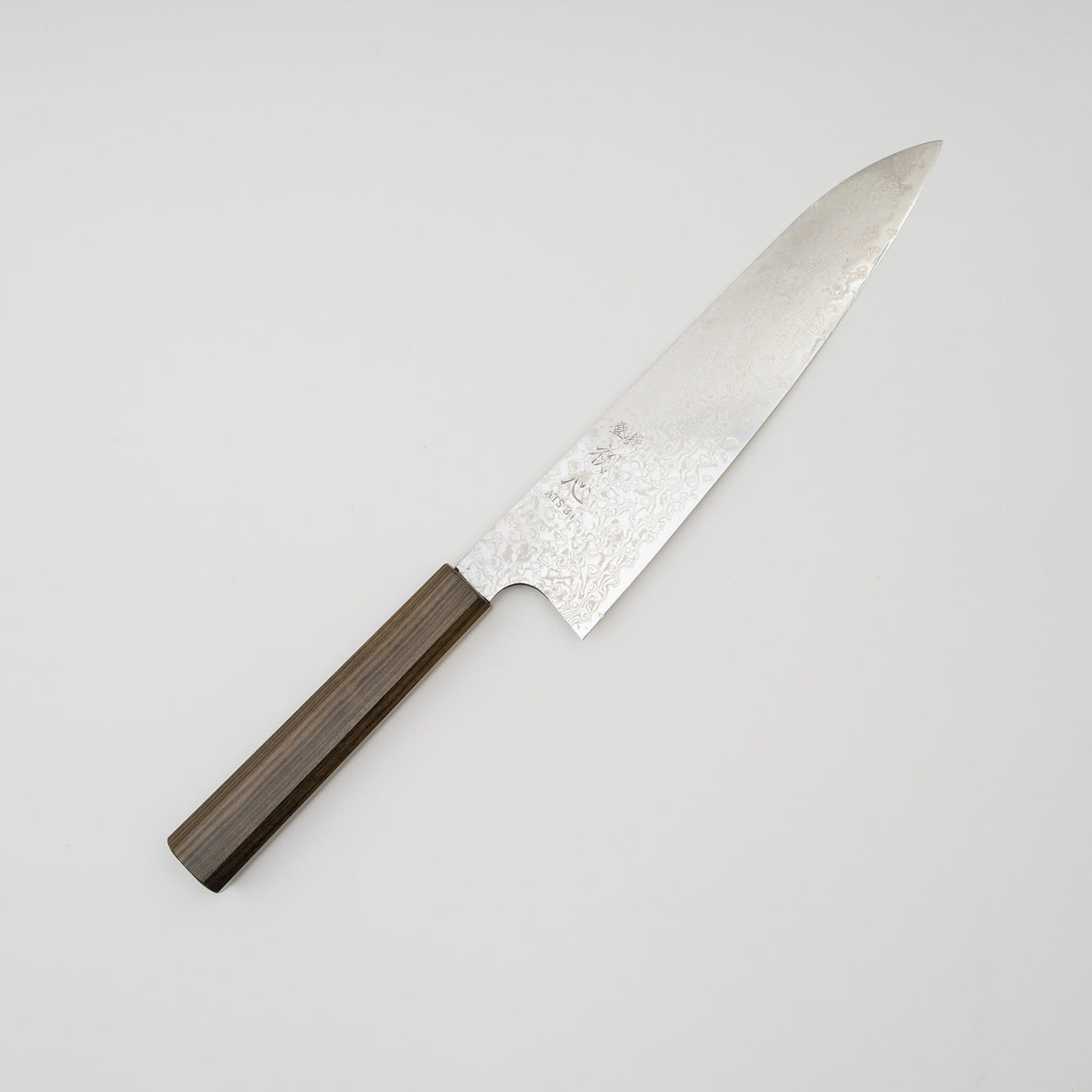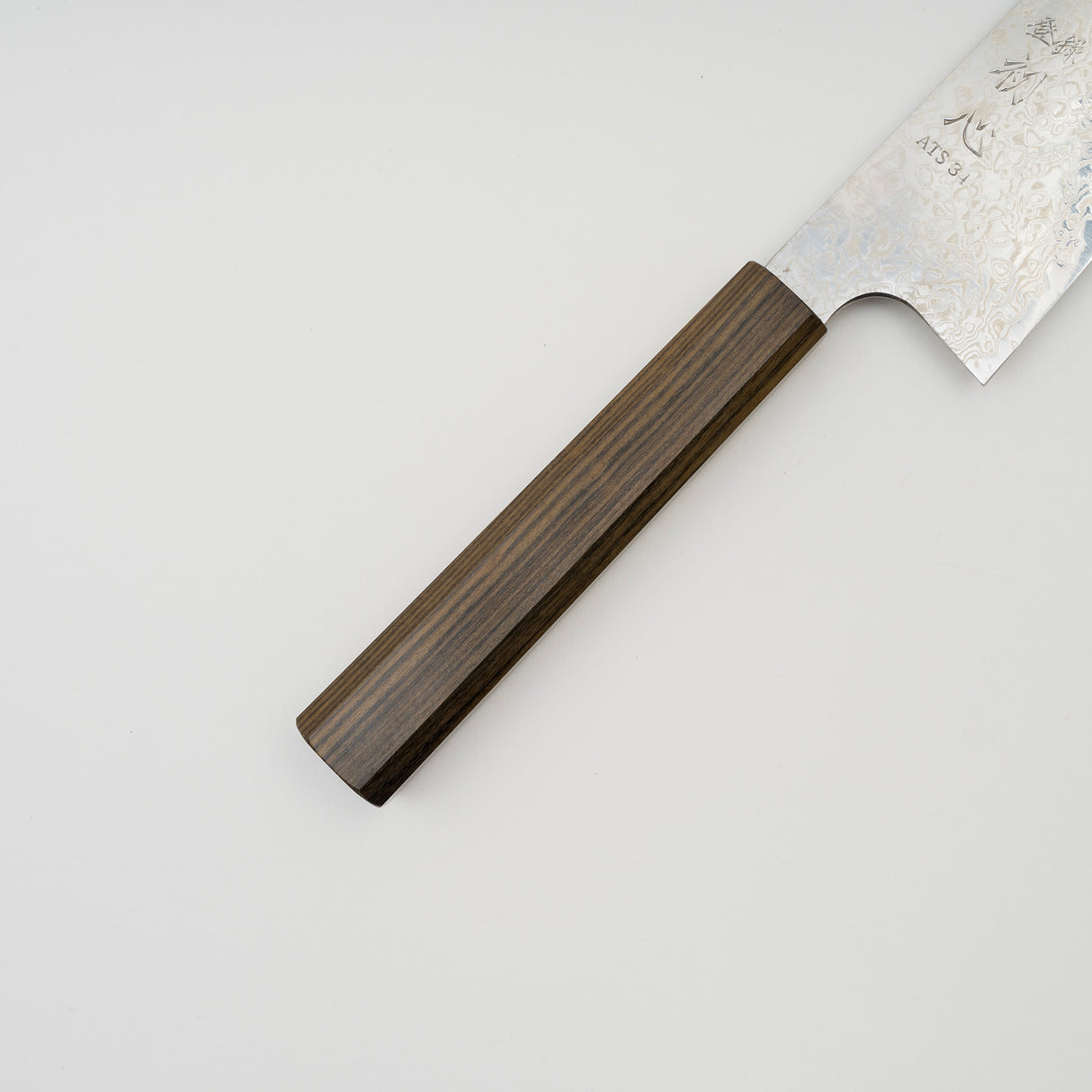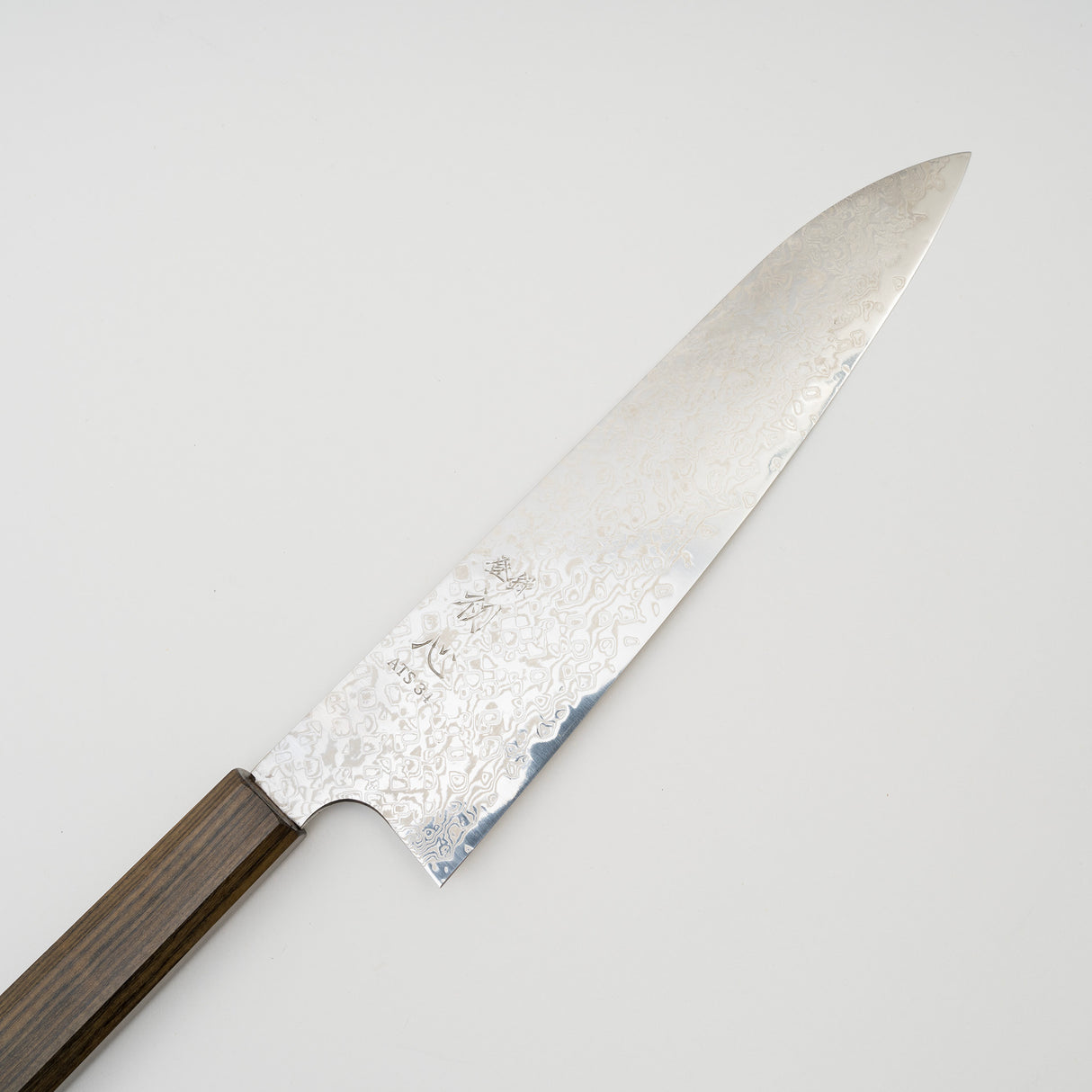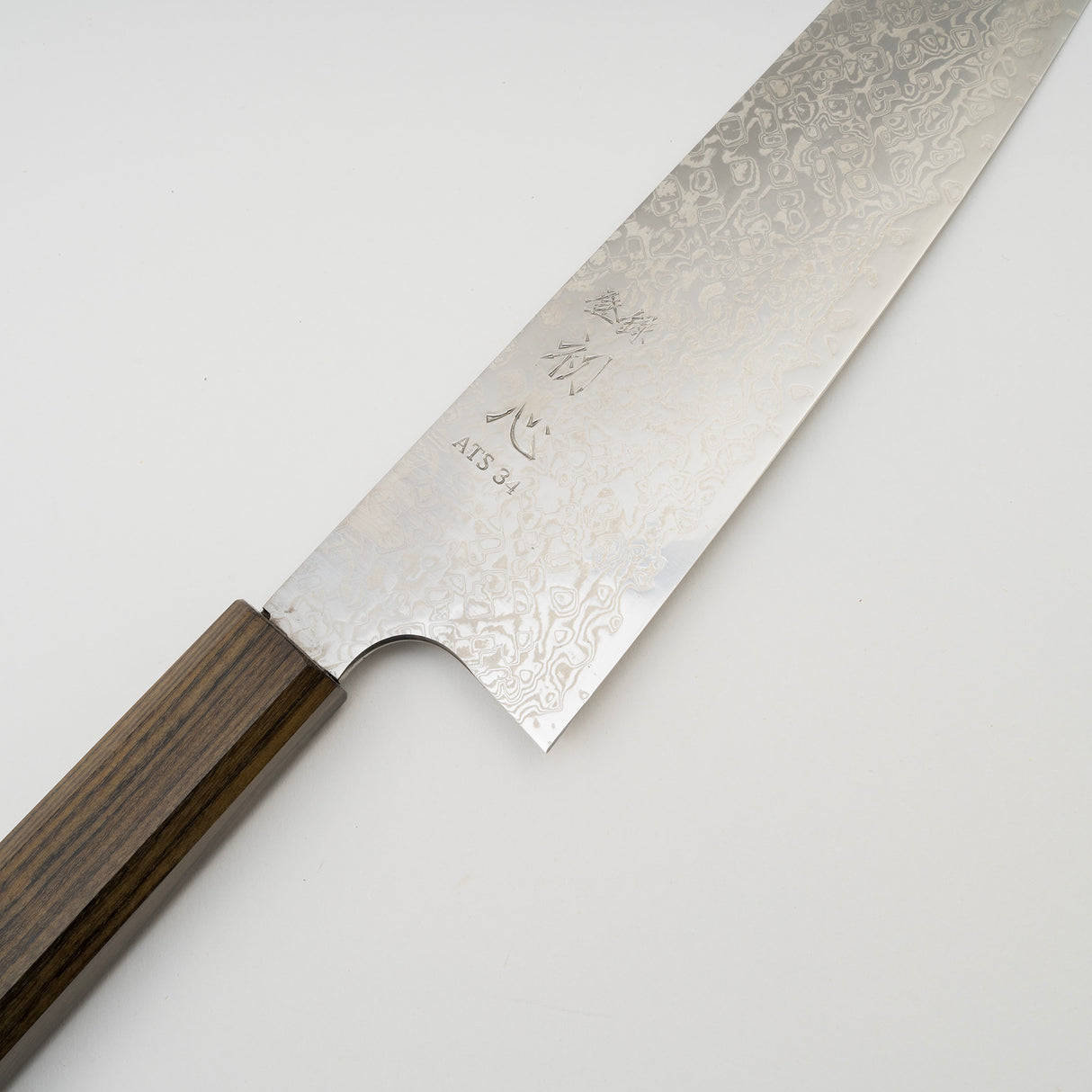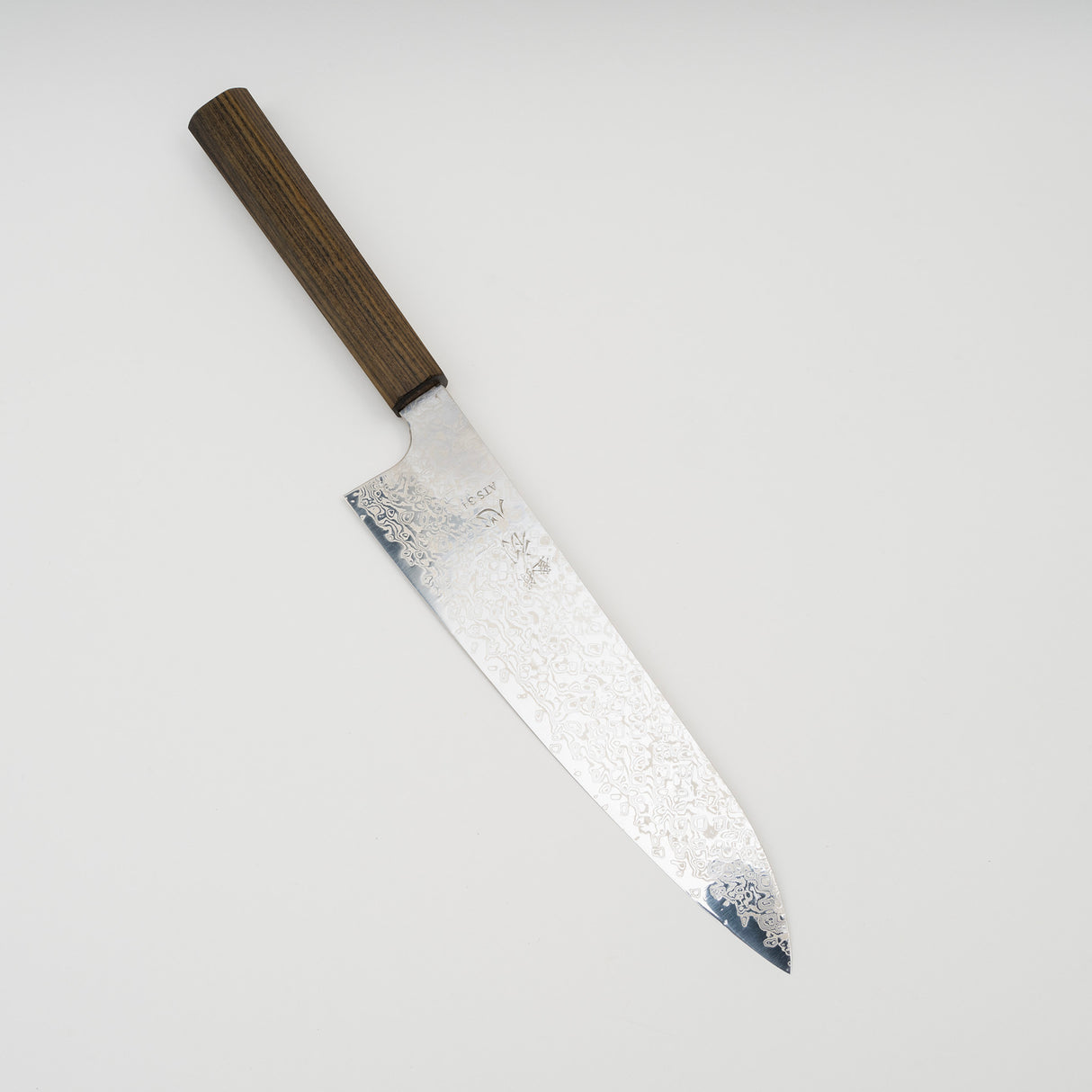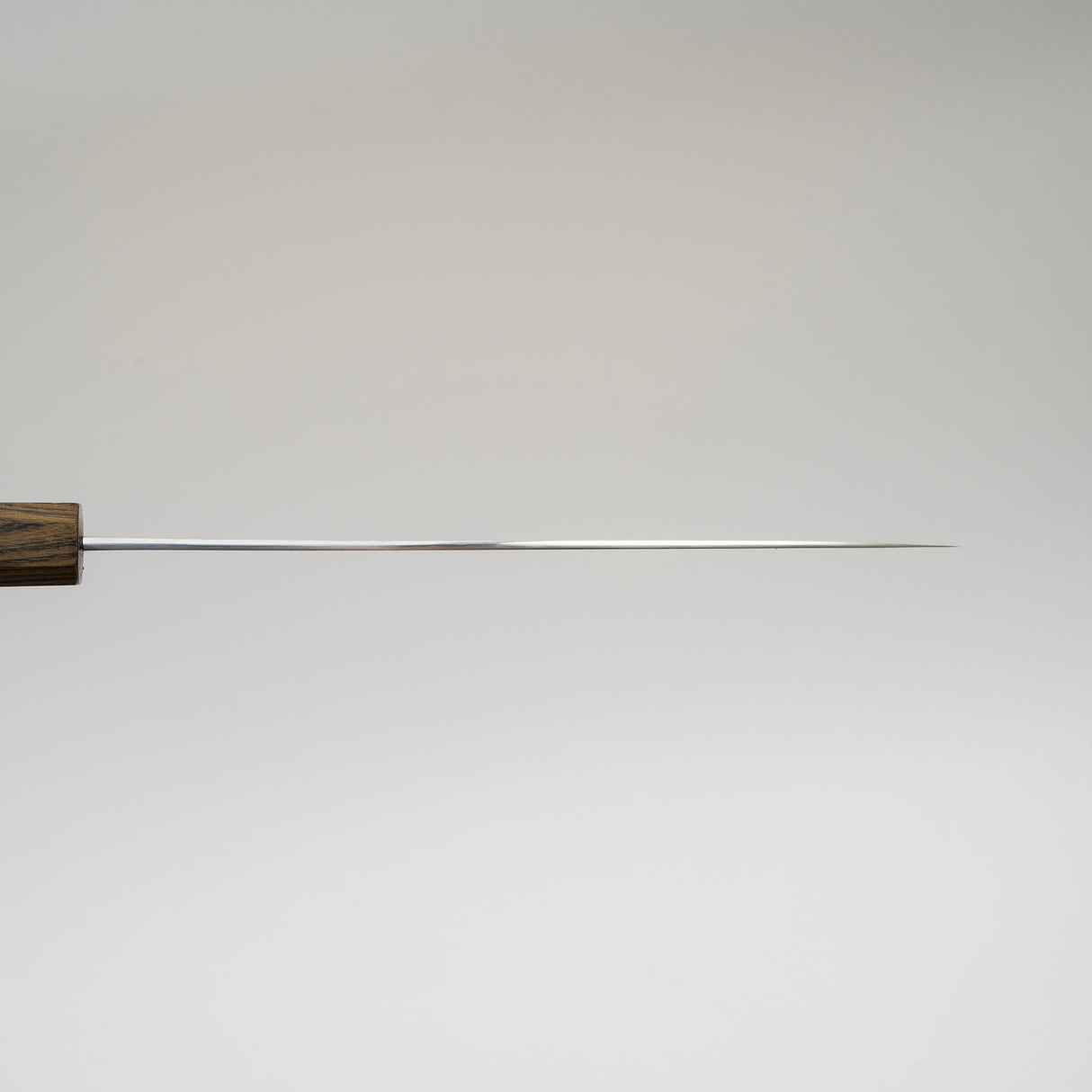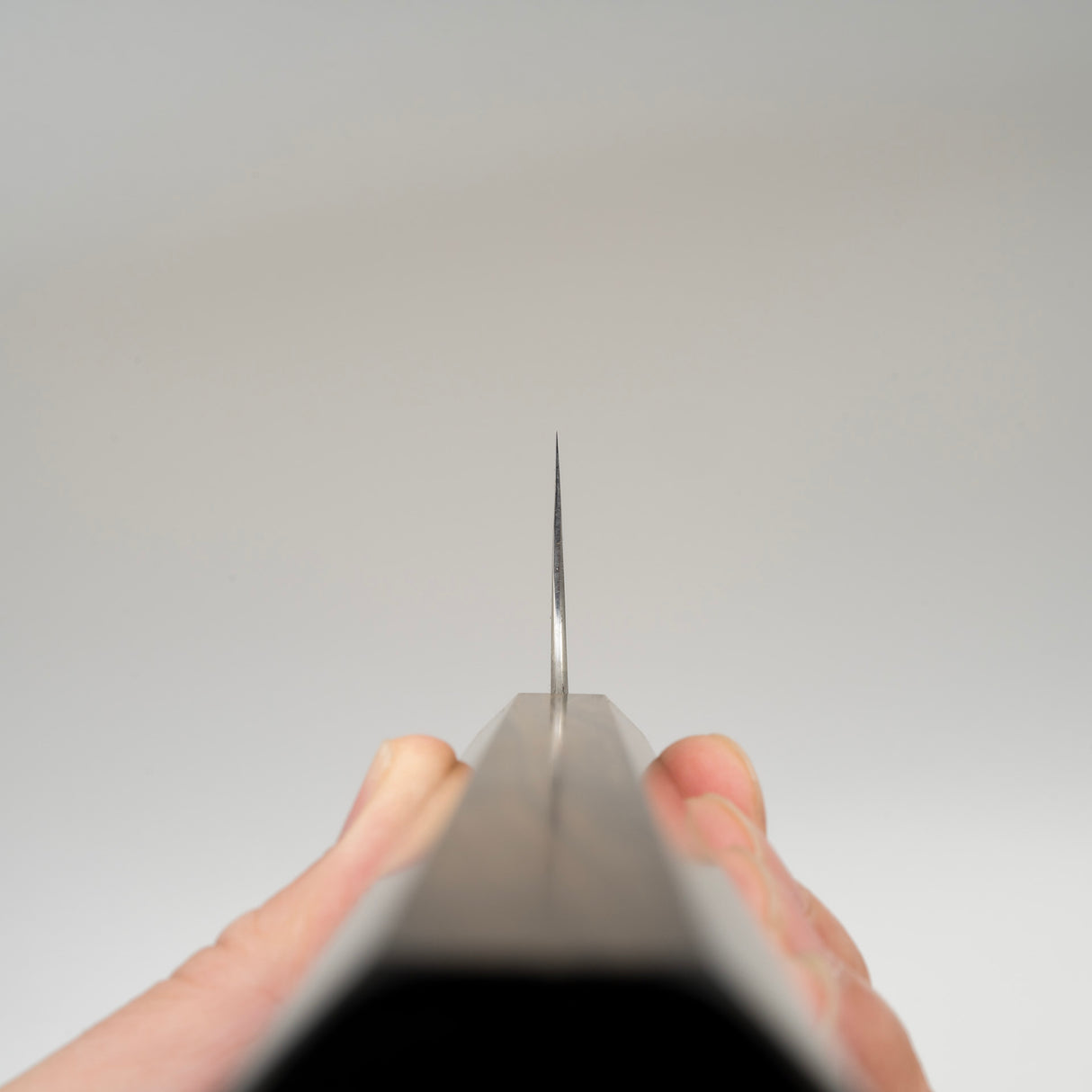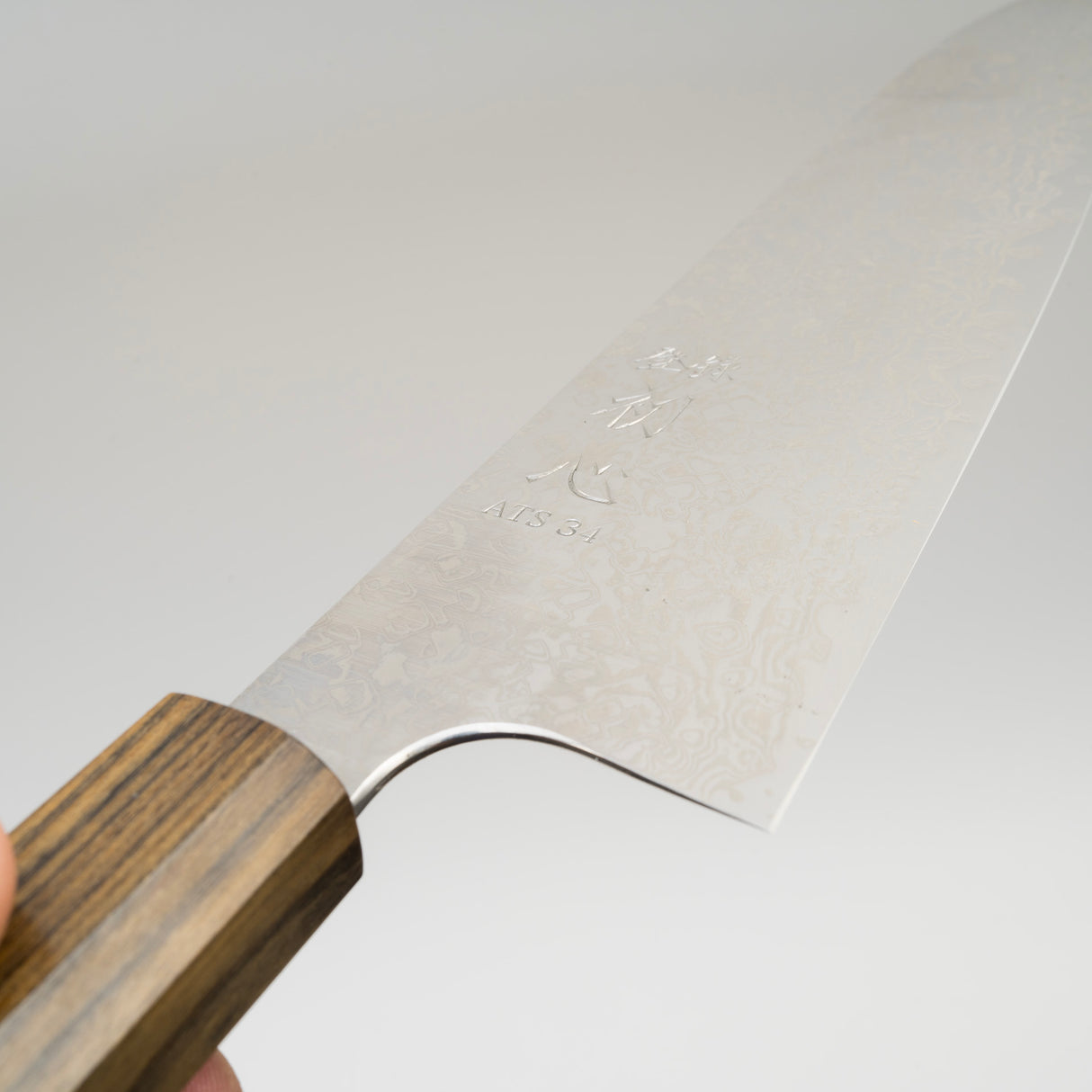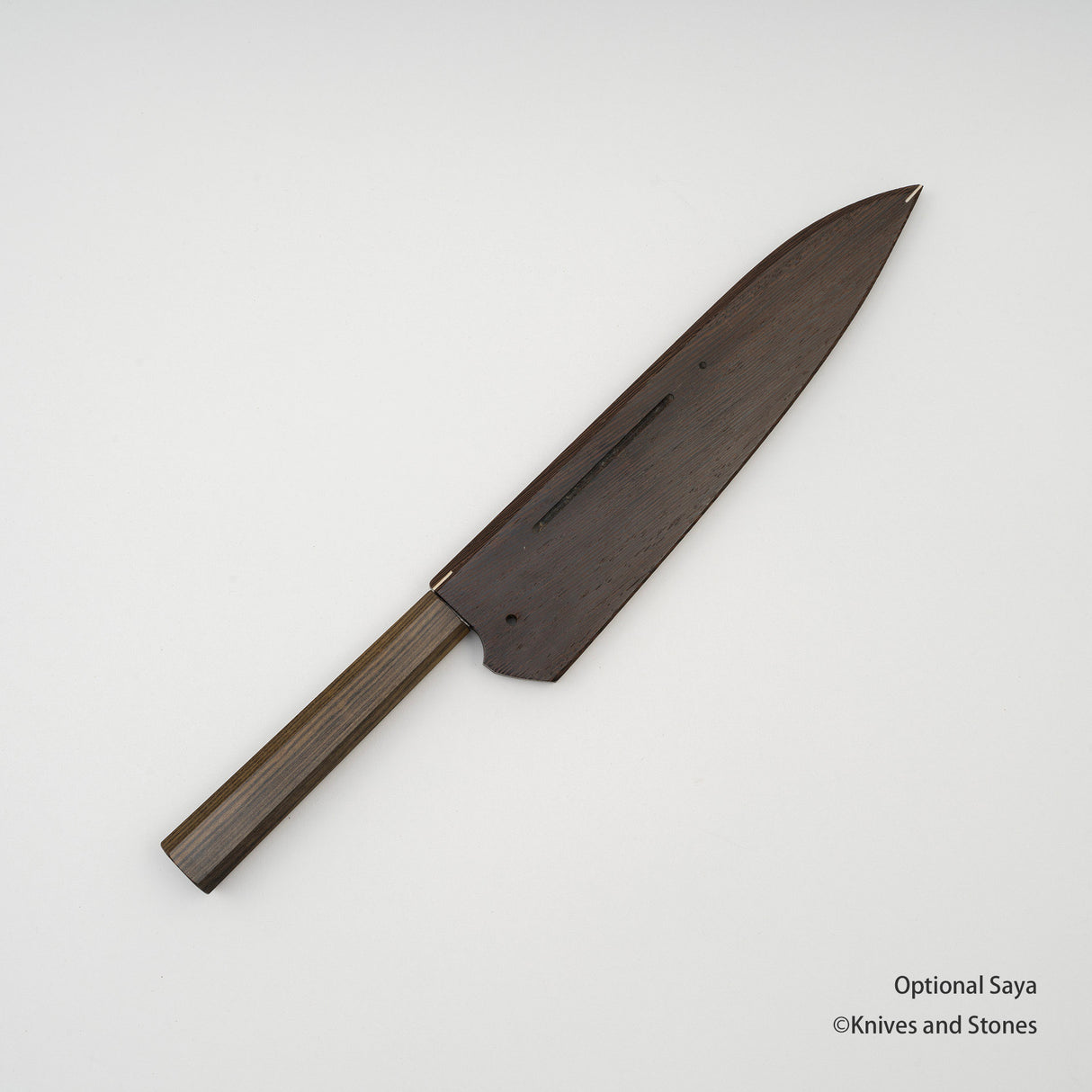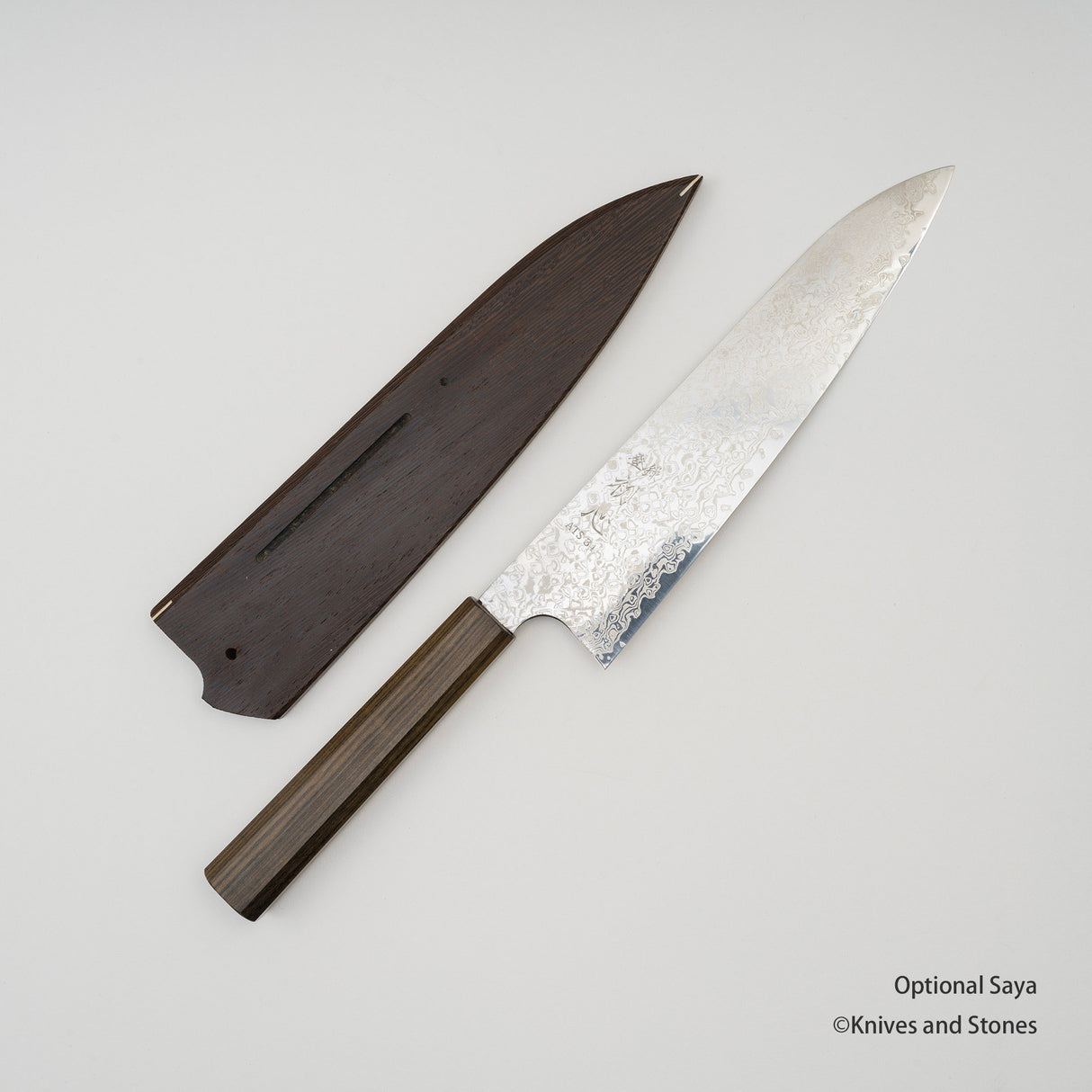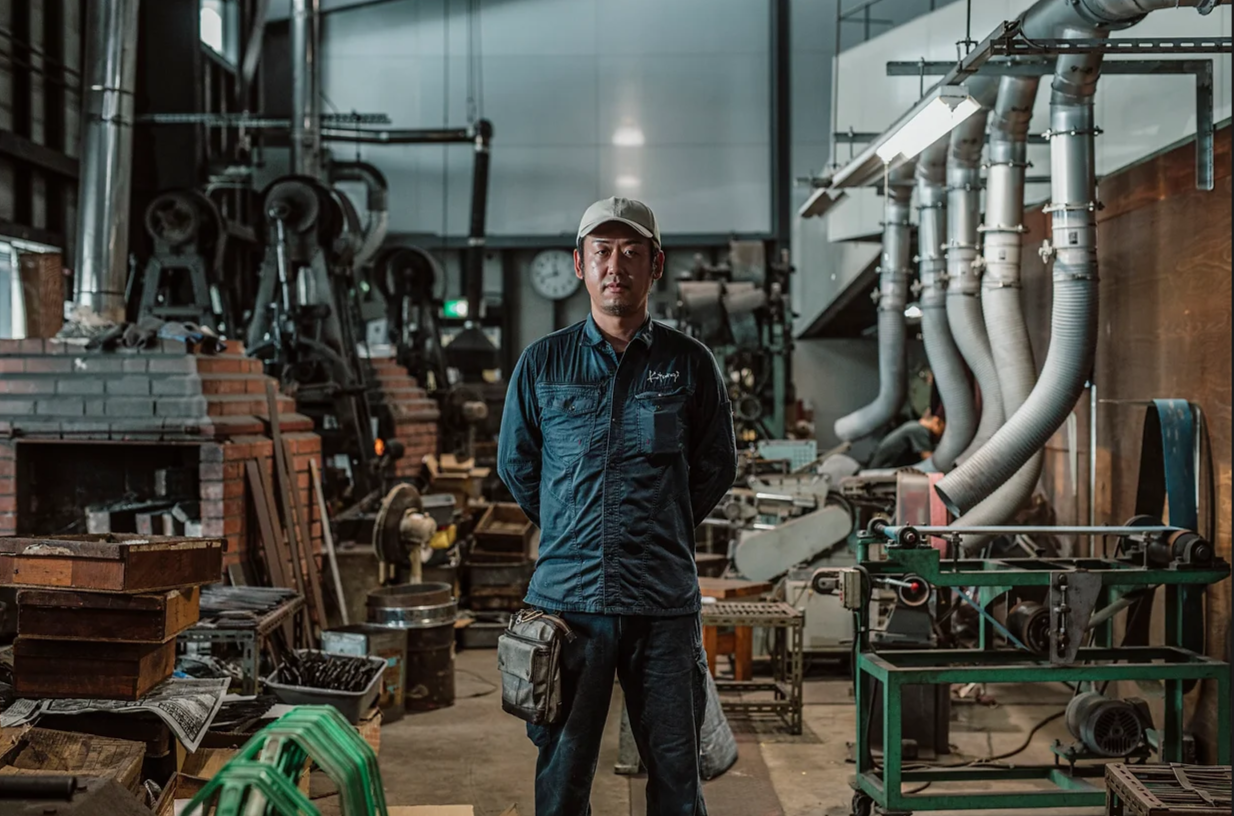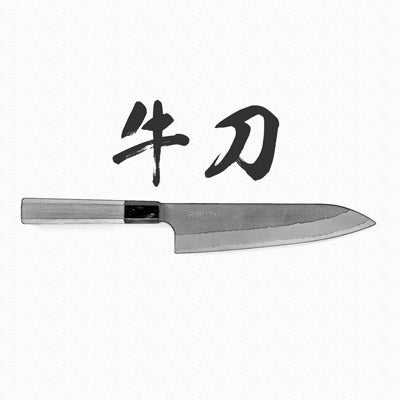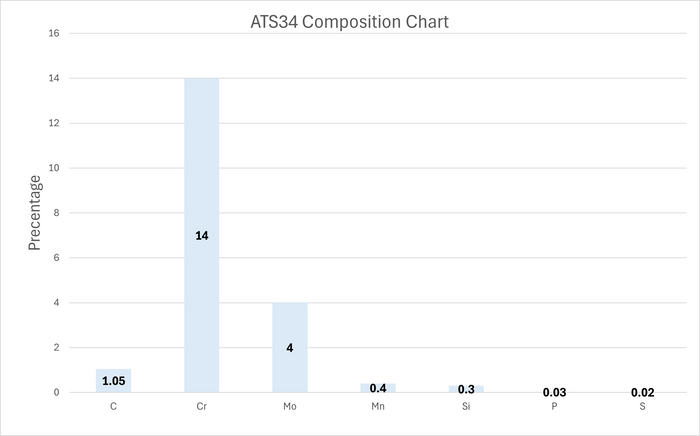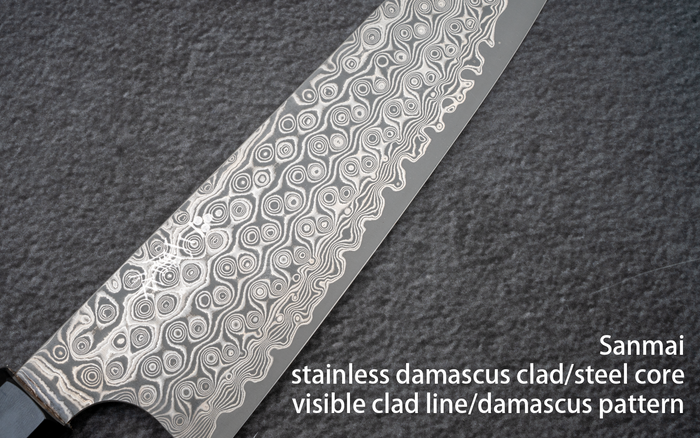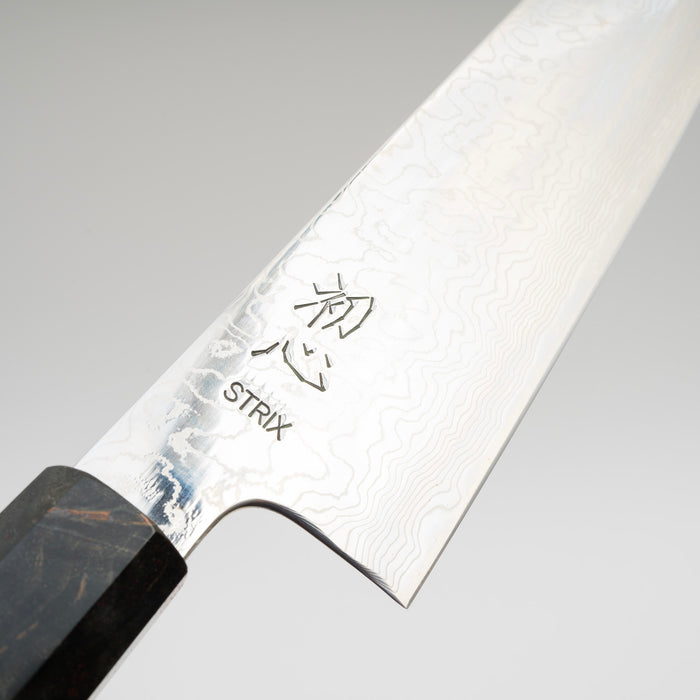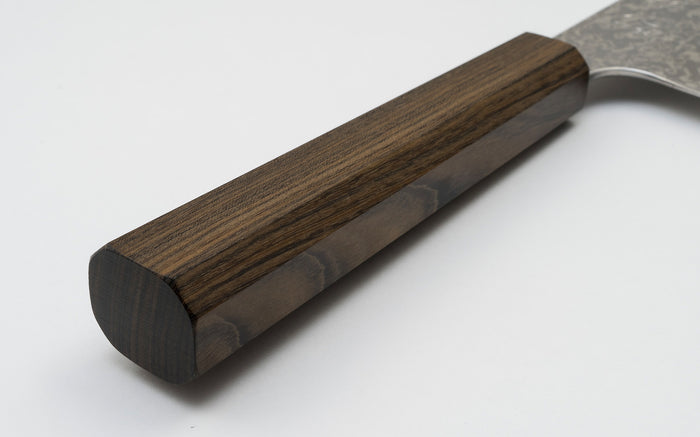Hatsukokoro | SKU:
HT-GINGAATS34-GY210
Hatsukokoro Ginga ATS34 Damascus Gyuto 210mm
Regular price
$565.00
Unit price
/
Unavailable
Hatsukokoro Ginga ATS34 Damascus Gyuto 210mm is backordered and will ship as soon as it is back in stock.
Couldn't load pickup availability
Detailed Specifications
| Line | Hatsukokoro By Yoshihiro Yauji Ginga ATS-34 Mirror Damascus |
| Profile | Gyuto / Chefs Knife |
| Bevel Type | Double Bevel |
| Weight | 165 g | 5.8 oz |
| Edge Length | 210 mm | 8 17/64″ |
| Heel Height | 50 mm | 1 31/32″ |
| Width @ Spine | 2.8 mm | 7/64″ |
| Width @ Mid | 2.3 mm | 3/32″ |
| Width @ 1cm from Tip | 0.6 mm | 1/32″ |
| Steel | ATS34 | Stainless |
| Blade Construction | Sanmai - Stainless Damascus Clad |
| Hardness (HRC) | 60 - 61 |
| Surface Finish | Mirror Polish |
| Handle | Octagonal Black Chacate |
| Region | Takefu |
| Best for |
|

Video Review
| Pros | Cons |
|
|
|
Care Instruction
- Don't cut hard things! Japanese knives are brittle so bone hacking is a NO NO!
- Wash with neutral detergent after use, and wipe dry;
- Please don't wash knife with dishwasher, it will damage the wood handle;
- Be careful not to leave the knife close to a heat source for a long time;
- It is a lot more dangerous to cut with a blunt knife than a sharp knife!
- It is best to sharpen a Japanese knife regularly on a waterstone.

